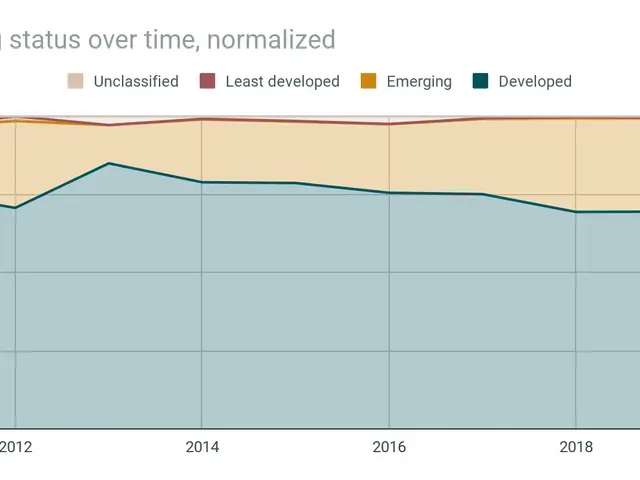LPO Escapes Destruction by OBBB, Trust Crumbles Due to Lack of Leadership
The Loan Programs Office (LPO) of the Department of Energy, a key player in financing energy projects, is facing unprecedented challenges under the second Trump administration.
When the new administration took office in January, it inherited 15 conditional commitments, totalling at least $30 billion. However, work on these commitments has come to a standstill, with none of them moving towards closure. This has raised concerns about the future of these projects and set a potentially damaging precedent for future administrations.
One of the most significant programmes affected is the Advanced Technology Vehicles Manufacturing programme, designed to boost domestic manufacturing of advanced vehicles, batteries, and other supply chain components. The programme has around $17 billion to $25 billion in loan authority remaining. The credit review board, which reviews pending loan guarantees and votes on whether to advance them to the energy secretary for approval, has not been effectively reformulated under the new administration, preventing the office from approving new loans.
The GOP budget bill has further limited the number of new loans the office can issue by rescinding much of LPO's credit subsidy. This, coupled with the lack of a functioning credit review board, has resulted in no new applications, no conditional commitments, and no new loans being closed in LPO's pipeline.
The leadership of LPO has also been in flux, with multiple directors coming and going since the administration took office. The most recent change occurred in June, when Genatowski resigned, following the office's political leadership indicating it would not go forward with existing conditional commitments.
Rumours are circulating that Secretary Wright is pushing to fire the current director, Greg Beard, and replace him with a former bitcoin mining executive. This move, if confirmed, could further destabilise the office.
Energy Secretary Chris Wright has accused LPO of mismanagement in multiple testimonies on Capitol Hill. Despite this, the House Appropriations Committee draft, released earlier this month, declines to adopt the additional cut requests from the administration and adds support for certain technologies like nuclear, suggesting that LPO may receive a softer treatment on the Hill than by Trump.
The future plans for LPO under the Biden administration are unclear, with no specific information available in the provided sources. However, the current state of affairs raises questions about the administration's commitment to finalising outstanding conditional commitments and processing new loans, and whether LPO will continue to play a significant role in financing energy projects.
The administration's actions are giving the impression that it is willing to cut corners for favoured projects, potentially eroding trust in the government as a reliable financing partner. This uncertainty is not only affecting the energy sector but could also have wider implications for the economy and the nation's energy security.
Read also:
- Peptide YY (PYY): Exploring its Role in Appetite Suppression, Intestinal Health, and Cognitive Links
- Toddler Health: Rotavirus Signs, Origins, and Potential Complications
- Digestive issues and heart discomfort: Root causes and associated health conditions
- House Infernos: Deadly Hazards Surpassing the Flames







